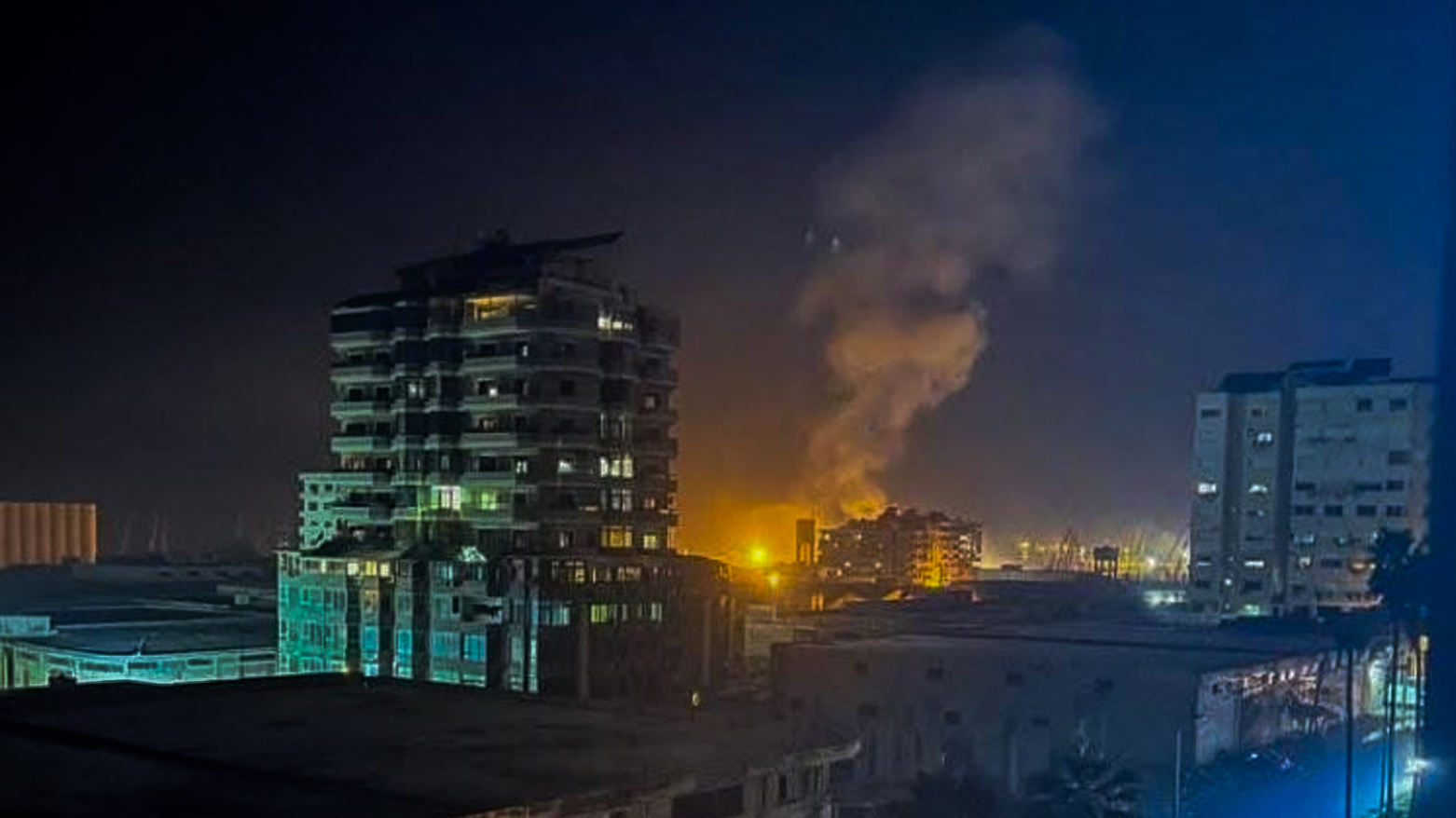Israel Strikes Military Targets in Southern Syria Amid Calls for Demilitarization
Israeli Foreign Minister Gideon Sa’ar, described Syria’s new government as a "jihadist terrorist group from Idlib that took over Damascus by force," reinforcing Israel’s justification for maintaining a strong military posture in the region.

ERBIL (Kurdistan 24) – The Israeli military launched airstrikes on multiple military sites in southern Syria late Tuesday, targeting command centers and weapons storage facilities, according to an official statement by the Israel Defense Forces (IDF).
Israeli Strikes Target Syrian Military Installations
The IDF confirmed in a statement that its warplanes struck several locations, citing the presence of military forces in southern Syria as a direct threat to Israeli security. The strikes reportedly hit military command centers and arms depots but did not specify exact locations.
The Syrian Observatory for Human Rights (SOHR) reported that at least two people were killed in one of the attacks, which targeted the headquarters of a military unit southwest of Damascus. However, it remained unclear whether the casualties were military personnel or civilians. The observatory also stated that an additional Israeli strike hit a military position in Daraa province, specifically the strategic hilltop of Tell al-Hara, which overlooks large areas of the Golan Heights and northern Israel.
Netanyahu Demands Complete Demilitarization of Southern Syria
The airstrikes followed a statement by Israeli Prime Minister Benjamin Netanyahu on Sunday, in which he called for the complete demilitarization of southern Syria, including the provinces of Quneitra, Daraa, and Suwayda. Netanyahu specifically warned against the presence of forces from Hayat Tahrir al-Sham (HTS) or the new Syrian army near Israel’s borders, stating that Israel would not tolerate their presence.
"Southern Syria must be completely demilitarized. We will not allow HTS or the new Syrian army to enter the area south of Damascus," Netanyahu declared.
The same day, Israel moved forces into a UN-monitored demilitarized zone in southern Syria, citing security concerns following the ousting of Bashar al-Assad’s regime by HTS-led forces in December.
Syrian Government Condemns Israeli Actions
Earlier on Tuesday, participants in Syria’s National Dialogue Conference, which concluded in Damascus, issued a closing statement rejecting Netanyahu’s remarks, describing them as "provocative." The statement also condemned Israel’s recent military incursions into Syrian territory and called on the international community to pressure Israel to cease its operations in the region.
Meanwhile, Israeli Foreign Minister Gideon Sa’ar, in an interview with France 24, described Syria’s new government as a "jihadist terrorist group from Idlib that took over Damascus by force," reinforcing Israel’s justification for maintaining a strong military posture in the region.
Escalating Tensions in Southern Syria
Israeli Defense Minister Israel Katz reiterated the country’s stance on the security situation in Syria, stating that Israel would continue striking military targets in the south to prevent it from becoming "another southern Lebanon."
"Any attempt by Syrian regime forces or terrorist organizations to establish themselves in the security zone in southern Syria will be met with fire," Katz's spokesperson said.
Residents in Damascus reported hearing low-flying aircraft over the city, followed by a series of explosions. Syrian security sources confirmed that Israeli warplanes struck military installations in Kisweh, approximately 20 kilometers south of Damascus, as well as a separate site in Daraa province.
Ongoing Israeli Strikes Following Assad’s Ouster
Since the fall of Bashar al-Assad’s regime, Israel has intensified its airstrikes on military targets across Syria. Israeli officials argue that these operations are necessary to prevent advanced weaponry from falling into hostile hands.
With tensions escalating and Israel continuing its military actions, the situation in southern Syria remains highly volatile, as regional actors maneuver to secure their strategic interests in the post-Assad era.
